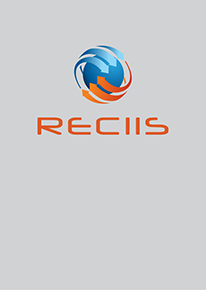Multi-user equipment, core-facilities and technological platforms: the evolution of organizational strategies for translational health research
DOI :
https://doi.org/10.3395/reciis.v6i3.511Mots-clés :
Developing Countries, Health Innovation, Science-Technology Integration, Laboratory Management, Translational researchRésumé
This paper examines how institutions organize and manage the research and development (R&D) infrastructure and facilities required to stimulate innovation and convert research into practical applications (‘translational research’). We have focused our analysis on universities and biomedical institutions that have created dedicated facilities to optimize this type of activity either working in isolation or in partnership with the industrial sector. We have detected three main types of infrastructure arrangements: multi-user equipment, corefacilities and technological platforms. Although most of the institutions share a common vision and definition for the first two categories, we have identified different perceptions on the nature, role and mission of existing, self denominated ‘technological platforms’. A review of these structures has led us to propose a unifying categorization and nomenclature system of these critical components of health innovation systems. Based on this conceptual framework we have analyzed the evolution of organizational R&D structures and initiatives of Fiocruz and developed a web-based system for the strategic planning, implementation and management of its network of translational research facilities located in several cities in Brazil. This approach may prove useful for organizations facing similar transitions and challengesTéléchargements
Comment citer
Numéro
Rubrique
Licence
Direitos de autor: O autor retém, sem restrições dos direitos sobre sua obra.
Direitos de reutilização: A Reciis adota a Licença Creative Commons, CC BY-NC atribuição não comercial conforme a Política de Acesso Aberto ao Conhecimento da Fundação Oswaldo Cruz. Com essa licença é permitido acessar, baixar (download), copiar, imprimir, compartilhar, reutilizar e distribuir os artigos, desde que para uso não comercial e com a citação da fonte, conferindo os devidos créditos de autoria e menção à Reciis. Nesses casos, nenhuma permissão é necessária por parte dos autores ou dos editores.
Direitos de depósito dos autores/autoarquivamento: Os autores são estimulados a realizarem o depósito em repositórios institucionais da versão publicada com o link do seu artigo na Reciis.












